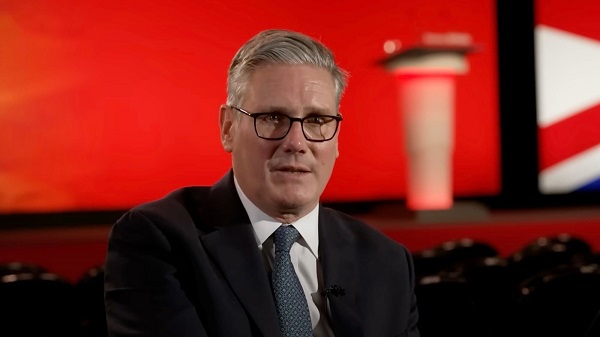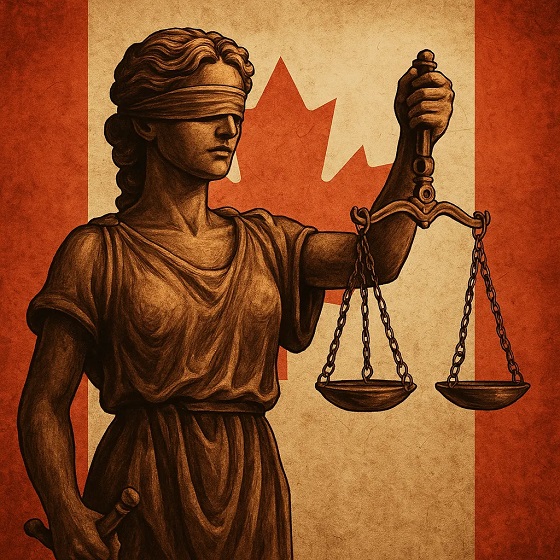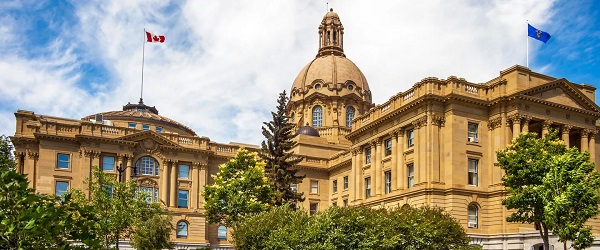News
Albertans Concerned About Interest Rate Hikes & Housing Bubble

A new survey released by MNP LTD finds that Albertans are concerned about the uncertainty of a potential housing bubble and impending interest rate hikes, adding financial stress to households already carrying a record level of debt.
Six in ten (61 per cent) of Albertans and nearly half (48 per cent) of Canadians homeowners are concerned about the impact rising interest rates will have on their finances. At the same time, more than half of Albertans (59 per cent) are worried about the potential impact that a decline in house prices might have on homeowners.
“So many are over-leveraged right now. Making matters worse, many are not making regular payments against the principal. With the financial stress of the downturn, and the threat of an increase in interest rates, many are going to find it even harder to make ends meet,” says Donna Carson, Licensed Insolvency Trustee at MNP LTD, a division of MNP LLP.
Nearly four in ten (39 per cent) homeowners in Alberta say that they will be faced with financial difficulties if the value of their home goes down, the highest proportion among other provinces. Even if home values don’t decline in the near future; three in ten Albertans (31 per cent) who have a mortgage agree that they are ‘in over their head’ with their current mortgage payments.
Homeowners aren’t the only ones concerned. Nearly eighty per cent of Albertans rate their ability to cope with a 1% interest rate increase as less than optimal. The vast majority of Albertans (83 per cent) would have difficulty absorbing an additional $130 per month in interest payments on debt.
“We’ve become far too comfortable paying only the minimum payments on our debts. It’s time to start assessing our ability to pay down those debts and ask ourselves if we can truly afford them if there is a rate change,” says Carson.
When asked about their personal debt situation, the majority of Albertans don’t feel optimistic. Nearly seven in ten (69 per cent) rated their debt situation as less than good, while sixteen per cent rated their situation as bad. On a scale of one to ten, from terrible to excellent, Albertans gave themselves an average rating of 6.
With nearly four in ten Albertans (38 per cent) finding themselves within $200 per month of financial insolvency, there is little wiggle room left to pay any unexpected bills or debts. If that amount is increased to $300 per month, a staggering forty-two per cent of Albertans would be on the verge of insolvency, with nearly one in four (22 per cent) not making enough to cover their bills and debt payments. Four in ten (42 per cent) say they are concerned about their current level of debt.
“Albertans should be bracing themselves for what’s ahead, especially those who already consider themselves to be in financial distress. Seek professional advice and start creating a realistic plan to deal with that debt,” says Carson.
Survey Highlights include:
- Three in ten Albertans with a mortgage agree they are ‘in over their head’ with their current mortgage payments
- Nearly four in ten homeowners in Alberta agree they will face financial difficulties if the value of their home goes down, six in ten Albertans think we’re in a housing bubble
- Six in ten Albertans agree they are concerned about the impact of rising interest rates
- Nearly eighty per cent of Albertans rate their ability to cope with a 1% interest rate increase as less than optimal
- Over a quarter (27%) of Canadians with a mortgage agree that they are ‘in over their head’ with their current mortgage payments. This includes more than one in three Quebecers (35%), followed by residents of BC (32%), Alberta (31%), Atlantic Canada (25%), Saskatchewan and Manitoba (23%), and Ontario (21%).
- Half of Canadians (51%) are concerned about the potential impact on home owners that a decrease in house prices might bring.
- Over forty (44%) of Canadians are within $200 of financial insolvency at the end of the month, down 8 points from March 2017, and 12 points from September 2016.
- Women are significantly more likely (48% women vs. 39% men) than men to be within $200 of insolvency at month-end.
- Gen X’ers are more likely (48%) to be within $200 of insolvency at month-end, compared to Millennials (43%) and Baby Boomers (40%).
- Half of Canadians (50%) are $300 per month away from being financially insolvent.
- Atlantic Canadians are the most likely to rate their personal debt situation as ‘bad’ – the highest in the country at 22%
- While two in three Canadians (67%) think we’re in a housing bubble, only a minority (43%) expect that bubble to burst through a decline in house prices in the next year. Half (51%) are concerned about the potential impact on home owners that such a decrease might bring.
Internet
It’s only a matter of time before the government attaches strings to mainstream media subsidies

Misinformation is not exclusive to alternative online news organizations
In a previous world, whether they succeeded or failed at that was really no one’s business, at least provided the publisher wasn’t knowingly spreading false information intended to do harm. That is against the law, as outlined in Section 372 of the Criminal Code, which states:
“Everyone commits an offence who, with intent to injure or alarm a person, conveys information that they know is false, or causes such information to be conveyed by letter or any means of telecommunication.”
Do that, and you can be imprisoned for up to two years.
But if a publisher was simply offering poorly researched, unbalanced journalism, and wave after wave of unchallenged opinion pieces with the ability to pervert the flow of information and leave the public with false or distorted impressions of the world, he or she was free to do so. Freedom of the press and all that.
The broadcasting world has always been different. Licensed by the Canadian Radio-television and Telecommunications Commission (CRTC), content produced there must, according to the Broadcasting Act, be of “high standard”—something that the CRTC ensures through its proxy content regulator, the Canadian Broadcast Standards Council (CBSC).
Its most recent decision, for instance, condemned Sportsnet Ontario for failing to “provide a warning before showing scenes of extraordinary violence” when it broadcast highlights of UFC mixed martial arts competitions during morning weekend hours when children could watch. If you don’t understand how a warning would have prevented whatever trauma the highlights may have caused or how that might apply to the internet, take comfort in the fact that you aren’t alone.
The CRTC now has authority over all video and audio content posted digitally through the Online Streaming Act, and while it has not yet applied CRTC-approved CBSC standards to it, it’s probably only a matter of time before it does.
The same will—in my view—eventually take place regarding text news content. Since it has become a matter of public interest through subsidies, it’s inevitable that “high standard” expectations will be attached to eligibility. In other words, what once was nobody’s business is now everybody’s business. Freedom of the, er, press and all that.

Alberta Premier Danielle Smith
Which raises the point: is the Canadian public well informed by the news industry, and who exactly will be the judge of that now that market forces have been, if not eliminated, at least emasculated?
For instance, as former Opposition leader Preston Manning recently wondered on Substack, how can it be that “62 per cent of Ontarians,” according to a Pollara poll, believe Alberta Premier Danielle Smith to be a separatist?
“The truth is that Premier Smith—whom I’ve known personally for a long time—is not a separatist and has made that clear on numerous occasions to the public, the media, and anyone who asks her,” he wrote.
I, too, have been acquainted for many years with the woman Globe and Mailcolumnist Andrew Coyne likes to call “Premier Loon” and have the same view as Manning, whom I have also known for many years: Smith is not a separatist.
Manning’s theory is that there are three reasons for Ontarians’ disordered view—the first two being ignorance and indifference.
The third and greatest, he wrote, is “misinformation—not so much misinformation transmitted via social media, because it is especially older Ontarians who believe the lie about Smith—but misinformation fed into the minds of Ontarians via the traditional media” which includes CBC, CTV, Global, and “the Toronto-based, legacy print media.”
No doubt, some members of those organizations would protest and claim the former Reform Party leader is the cause of all the trouble.
Such is today’s Canada, where the flying time between Calgary and Toronto is roughly the same as between London and Moscow, and the sense of east-west cultural dislocation is at times similar. As Rudyard Kipling determined, the twain shall never meet “till earth and sky stand presently at God’s great judgment seat.”
This doesn’t mean easterners and westerners can’t get along. Heavens no. But what it does illustrate is that maybe having editorial coverage decisions universally made in Hogtown about Cowtown (the author’s outdated terminology), Halifax, St John’s, Yellowknife, or Prince Rupert isn’t helping national unity. It is ridiculous, when you think about it, that anyone believes a vast nation’s residents could have compatible views when key decisions are limited to those perched six degrees south of the 49th parallel within earshot of Buffalo.
But CTV won’t change. Global can’t. The Globe is a Toronto newspaper, and most Postmedia products have become stripped-down satellites condemned to eternally orbit 365 Bloor Street East.
The CRTC is preoccupied with finding novel ways to subsidize broadcasters to maintain a status quo involving breakfast shows. So we can’t expect any changes there, nor can we from the major publishers.
Which leaves the job to the CBC, whose job it has always been to make sure the twain could meet. That makes it fair to assume Manning will be writing for many years to come about Toronto’s mainstream media and misinformation about the West.
(Peter Menzies is a commentator and consultant on media, Macdonald-Laurier Institute Senior Fellow, a past publisher of the Calgary Herald, a former vice chair of the CRTC and a National Newspaper Award winner.)
Business
Elon Musk’s X tops Canadian news apps, outperforming CBC, CTV

From LifeSiteNews
While X sits at number one, CBC News, Canada’s crown news agency, ranks at number 9 in news apps. Similarly, CTV News is ranked at number 10.
Elon Musk’s X, formerly known as Twitter, now ranks number one in news apps for Canadians, outranking mainstream media outlets.
In an August 7 post, Elon Musk, the owner of X, celebrated X placing first among news apps downloaded from the app store in Canada, as Canadians increasingly turn to alternative media sources amid ongoing media censorship and bias.
“This indicates that a very large segment of the Canadian population no longer trusts the mainstream media,” Campaign Life Coalition’s Jack Fonseca told LifeSiteNews.
“They view legacy news outlets like the CBC as nothing more than propaganda factories, paid by the Liberal government to spew forth its narratives,” he continued.
Since X was bought by Musk in 2023, the platform has relaxed its censorship policies, allowing for a more open discussion of controversial topics.
While by no means perfect, the app has become a valuable method of sharing censored information, especially in Canada, where most media outlets receive funding from the Liberal government.
“Generally speaking, free speech reigns on X, and that’s what people want,” Fonseca declared. “They want the ability to hear both sides of an issue, no matter how controversial. The freedom to say what they believe and not be censored.”
“The CBC, CTV, Toronto Star and all the other propaganda machines do not allow both sides of an issue to be aired in a fair or balanced manner,” he continued.
Indeed, while X sits at number one, CBC News, Canada’s crown news agency, ranks at number 9 in news apps. Similarly, CTV News is ranked at number 10.
CBC’s low ranking is likely linked to the fact that the outlet receives over a billion dollars in funding from the Liberal government each year. Liberal funding, in addition to biased reporting, has led many Canadians to consider the outlet nothing more than an arm of the Liberal party.
This January, the watchdog for the CBC ruled that the state-funded outlet expressed a “blatant lack of balance” in its covering of a Catholic school trustee who opposed the LGBT agenda being foisted on children.
There have also been multiple instances of the outlet pushing leftist ideological content, including the creation of pro-LGBT material for kids, tacitly endorsing the gender mutilation of children, promoting euthanasia, and even seeming to justify the burning of mostly Catholic churches throughout the country.
However, many Canadians are awakening to the lies and half-truths perpetuated by legacy media outlets and are instead turning to alternative media sources.
According to a 2024 global “trust” index, the majority of Canadians believe that legacy media journalists and government officials are not trustworthy and are “lying to them” regularly.
Fonseca stressed the importance of “the rapidly growing independent media orgs (…) like LifeSiteNews, Rebel News, the Western Standard, Juno News and Epoch Times. But even these alternative media rely significantly on X to amplify their content.”
“Undoubtedly, the Carney regime will try to shut down X, or force censorship on the platform through legislation and regulation, so we must fight and pray to ensure our shill globalist Prime Minister doesn’t succeed,” he warned.
“Carney would have us all become slaves to the state, without any voice or real power. Although X isn’t perfect, we need it desperately if we’re to have any hope of Canada staying ‘glorious and free,’” Fonseca declared.
-

 Artificial Intelligence1 day ago
Artificial Intelligence1 day agoThe App That Pays You to Give Away Your Voice
-

 Health1 day ago
Health1 day agoThe Religious Faith in Vaccines has been Challenged, Forcing New Studies and More Rigorous Standards
-

 Agriculture3 hours ago
Agriculture3 hours agoCarney’s nation-building plan forgets food
-

 Fraser Institute4 hours ago
Fraser Institute4 hours agoAboriginal rights now more constitutionally powerful than any Charter right
-

 Alberta5 hours ago
Alberta5 hours agoAlberta puts pressure on the federal government’s euthanasia regime
-

 Business2 days ago
Business2 days agoUK Government Dismisses Public Outcry, Pushes Ahead with Controversial Digital ID Plan
-

 Crime2 days ago
Crime2 days agoThe “Strong Borders Act,” Misses the Mark — Only Deep Legal Reforms Will Confront Canada’s Fentanyl Networks
-

 Censorship Industrial Complex2 days ago
Censorship Industrial Complex2 days agoBill C-9 and the Tyranny of Feeling Heading Straight for Canadians







